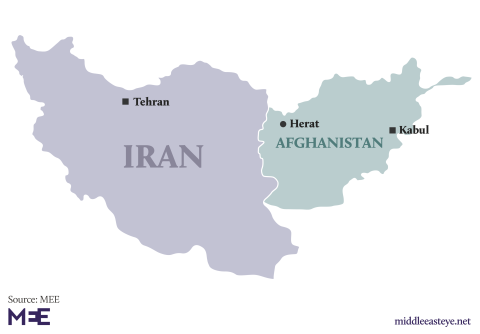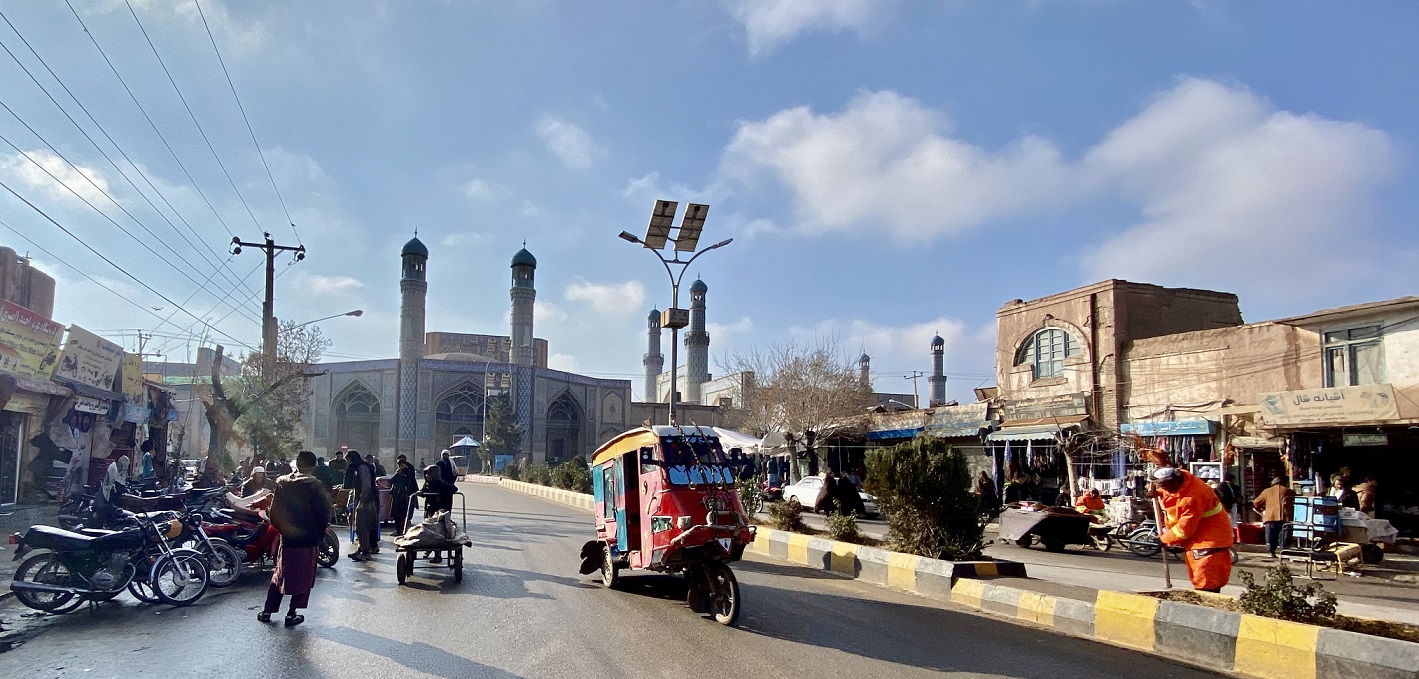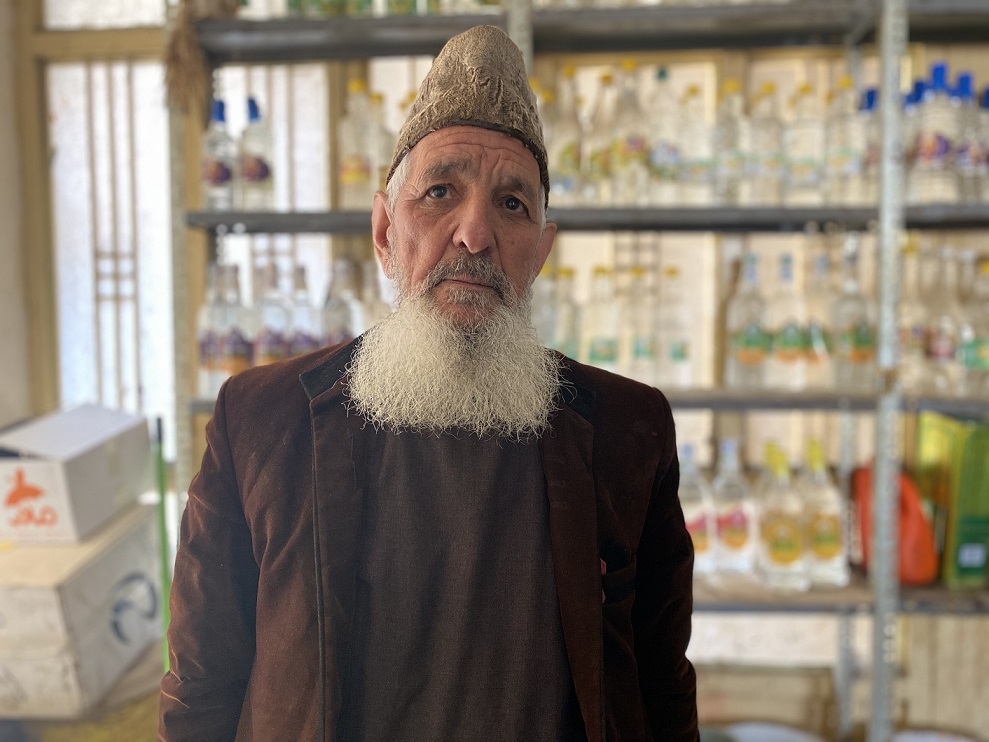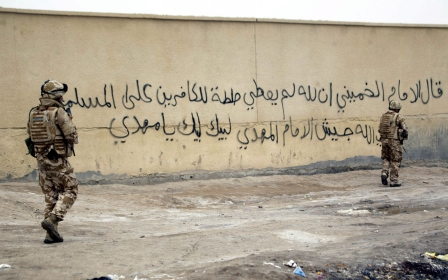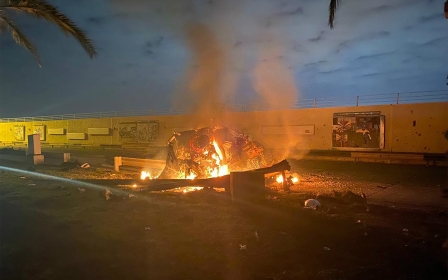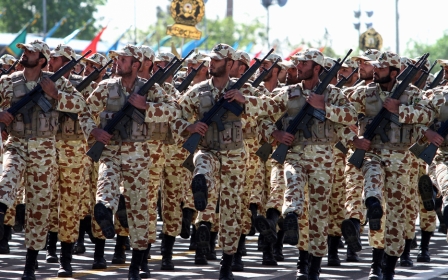Fear in Afghanistan as Iran's neighbours wait anxiously for Soleimani spillover
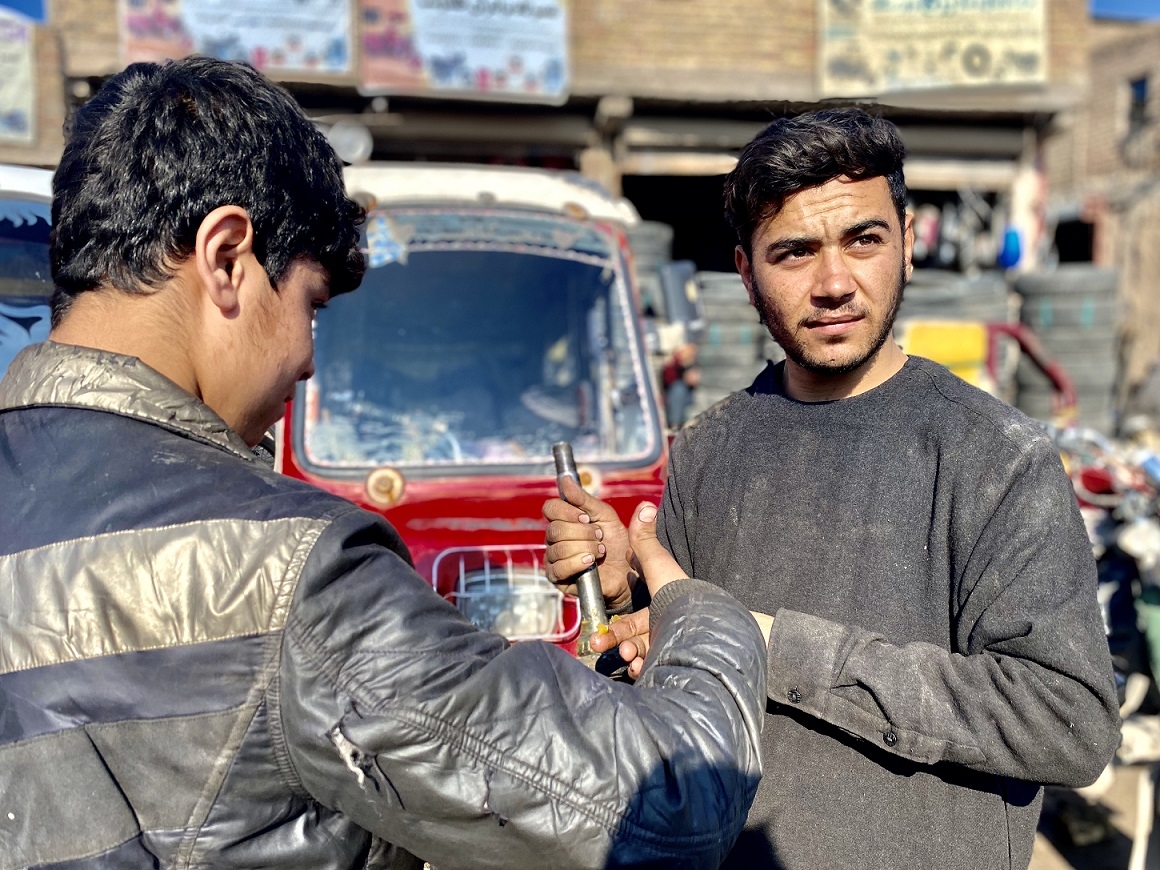
Prior to his assassination last week, Qassem Soleimani was a nominal figure in Afghanistan.
For years, most Afghans knew Soleimani as the Iranian general associated with anti-Soviet commanders or for his role in Tehran’s fight against drug smugglers, which sources say often led him into Afghanistan’s western zone.
However, after being killed by a US drone strike in Baghdad, the slain commander of Iran’s Quds Force has become yet another source of fear for millions of Afghans.
Throughout the nation’s 40-year-long conflict, the Afghan people have constantly accused the neighbouring Islamic Republics of Iran and Pakistan of using their nation as a proxy for Tehran and Islamabad’s own political and military interests.
'The majority of people in Afghanistan knew Qassem Soleimani as a murderer of their children'
- Abdul Qader Kamil, political analyst
In recent years, Iran’s involvement in the Syrian war, in which Soleimani played a central role, had become a source of worry for Afghans.
New MEE newsletter: Jerusalem Dispatch
Sign up to get the latest insights and analysis on Israel-Palestine, alongside Turkey Unpacked and other MEE newsletters
Starting in 2013, the Quds Force, which Soleimani headed, began recruiting thousands of Afghan refugees - some as young as 14 - to fight alongside Syrian government forces.
As the bodies of young Afghans were brought back to the Iranian cities of Mashhad, Isfahan and Tehran in the ensuing years, one name was on the tip of the Afghan people’s tongues: Qassem Soleimani.
“The majority of people in Afghanistan knew Qassem Soleimani as a murderer of their children,” said Abdul Qader Kamil, a political analyst based in the western province of Herat. “He turned our people into his own fighting force.”
Because of this, Kamil said few Afghans would shed tears over the assassination of Soleimani.
Reassuring Iran
Of course, there are some Afghans who see Soleimani’s role in the Syrian war - including the recruitment of Afghan refugees - in a different light, one of fighting against alleged threats to regional security.
“If the people of Afghanistan know Qassem Soleimani, it is in light of his service in the fight against Daesh and other terrorist groups in Iraq and Syria,” said Abdul Wahab Sediqi, a journalism professor at the Herat University, using the Arabic name for the Islamic State (IS) militant group.
Sediqi’s words seem to echo a statement made by Afghanistan’s Second Vice President Mohammad Sarwar Danish, who said: “Sardar Soleimani was a prominent figure in anti-Daesh efforts in the region.”
Still, both Kamil and Sediqi fear that Afghans could be the ones to lose out in the decades-long fight between Washington and Tehran.
Kamil points to a May 2019 statement issued by Iran’s deputy foreign minister, Seyed Abbas Araghchi, as a sign of worry. At the time, Aragchi said that if renewed US sanctions drove Iranian crude exports to zero “it is possible that we ask our Afghan brothers and sisters to leave Iran".
It is precisely because of threats like these, both men say, that it is important for the Kabul government, which is still highly reliant on US economic and military aid, to reassure Tehran that the US will never be allowed to use Afghan territory for any potential attacks on Iran.
Shortly after Soleimani’s death, the Afghan president, Ashraf Ghani, called his Iranian counterpart, Hassan Rouhani, to assure him of that fact.
The “Afghan government reassures the Afghan people and the neighbouring countries that Afghanistan’s territory will not be used against any other nation in the region,” Ghani said in a statement.
Trump's warning
But for the people of Herat, which shares a large border with Iran, recent threats made by US President Donald Trump have left them concerned.
'Millions of us either live there or have families in Iran, it will affect us politically and societally'
- Mirza Qalam, pharmacist in Herat
Will Washington, they wonder, abide by the letter of a 2014 security pact with Kabul which explicitly stated that the United States would not use Afghanistan to launch attacks on neighbouring countries.
On 5 January, Trump took to his favourite medium, Twitter, to issue a threat to Tehran, saying: “Let this serve as a WARNING that if Iran strikes any Americans, or American assets, we have targeted 52 Iranian sites (representing the 52 American hostages taken by Iran many years ago), some at a very high level & important to Iran & the Iranian culture, and those targets, and Iran itself, WILL BE HIT VERY FAST AND VERY HARD. The USA wants no more threats!”
This threat is especially worrying to Mirza Qalam, a former fighter in the war against the Soviet occupation who now runs a herbal medicine shop in the city of Herat.
“Of course we’re afraid, there’s fear everywhere,” he says as a group of women wait for him to prescribe remedies for their illnesses.
Qalam refers also to the many Afghans living across their nation's border: “Millions of us either live there or have families in Iran, it will affect us politically and societally.”
He also fears a direct threat to Afghanistan.
“Right now, there are Iranians and backers of Soleimani who are thinking ‘the force that killed Soleimani are in Afghanistan right now,’ and that’s absolutely terrifying."
Middle East Eye delivers independent and unrivalled coverage and analysis of the Middle East, North Africa and beyond. To learn more about republishing this content and the associated fees, please fill out this form. More about MEE can be found here.


